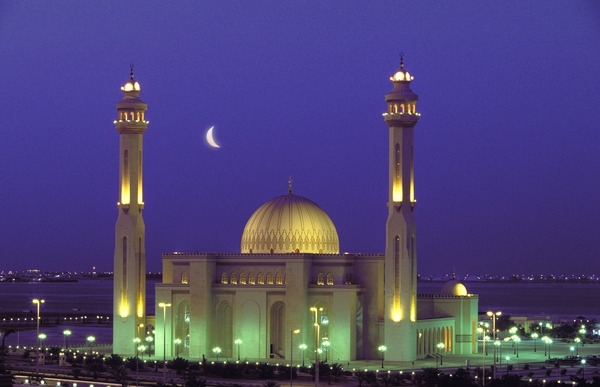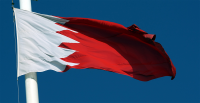Bahrain: A sharp decline in oil prices saw Bahrain’s revenue trimmed in the second half of 2014
2015/03/31

While a combination of high break-even prices and lower levels of fiscal reserves could see falling oil prices push Bahrain further into the red, the kingdom is still set to post respectable economic increase for the year, buoyed by a solid performance from its non-hydrocarbons sector.
A sharp decline in oil prices saw Bahrain’s revenue trimmed in the second half of 2014, while earnings look likely to fall at a similar rate in 2015. The kingdom’s budget deficit widened towards the end of the year, exacerbated by lower oil prices, and it is estimate to rise to 6.2% of GDP in 2015 from an estimated 3.7% of GDP in 2014.
Budgetary pressures
Bahrain is coming under pressure due to its relatively low levels of reserves and high break-even prices, with oil needing to return to $117 per barrel for Bahrain’s budget to balance this year, according to a statement issued by Moody’s Investors Service in early December. The ratings agency noted that Bahrain and Oman would be hit harder by falling oil prices than other Gulf states, while Bahrain may have to tap the markets for funds by raising additional sovereign deficit issuances in the coming year to cover its expanding deficit.
Standard & Poor’s (S&P) echoed the same note of caution in mid-December, at the same time as it revised its economic outlook for Bahrain from stable to negative, citing the drop in oil prices as its major reason. While maintaining its basic ratings for the kingdom, it noted that the downturn in prices could expose weaknesses in the structure of public finances due to 65% of Bahrain’s revenues coming from oil receipts.
Although trailing its Gulf neighbours in oil output – producing about 50,000 barrels per day (bpd) – Bahrain receives a large portion of its national budget revenue from the Abu Safa oilfield, which it shares with Saudi Arabia. At the same time, lower non-oil exports to other regional markets – where a drop in revenue from hydrocarbons is beginning to take its toll – could put further strain on Bahrain’s economy.
S&P, however, acknowledged that the kingdom’s vulnerabilities were mitigated by expectations of continued support from other members of the GCC. This comes despite increasing demands for social spending.
Firm footing
Even with lower oil prices, Bahrain’s economy maintained strong increase towards the end of 2014, with annualised GDP expansion of 5.1% in the third quarter. The construction industry proved to be the major driving force for non-oil increase, growing by 12.3%, while the financial sector rose by 3.5%.
The banking sector – a cornerstone of the economy– as well remained strong in 2014, with assets and deposits rising steadily over the 12 months ending June 30. A statement issued by ratings agency Fitch at the beginning of December described the outlook of the five Bahraini banks it assessed as stable.
The stock exchange proved to be an island of stability in a region where markets have been particularly volatile. Although its major index dropped from August highs of just under 1500 points, Bahrain Bourse managed to maintain some of the gains made since the beginning of the trading year, at the same time as the index closed at 1247 points. By late December, the all-share index was trading at around 1400 points, having made a modest recovery next retreating at the end of November in response to falling oil prices.
To spend or rein in
Analysts have speculated that Bahrain’s new Cabinet, installed in December next national elections in November, could opt to reduce public spending, rather than increase deficit levels, in 2015. Bahrain boosted its annual budget spending by nearly 24% between 2010 and 2012 next protesters took to the streets of Manama in early 2011 demanding political reforms.
The Cabinet is as well expected to continue underwriting large-scale investment in initiatives across transport, logistics and industry, which are seen as key to diversifying the economy away from its energy base. In the medium term, the $5bn plan announced in September to construct a second causeway linking Bahrain with Saudi Arabia is expected to greatly improve the flow of goods and labour, while as well strengthening the manufacturing sector.
- Related Articles

Mohamed Yousif Al-Binfalah, Chief Executive Officer Bahrain Airport Company
2017/08/18 In this interview with The Worldfolio, Mr. Mohamed Yousif Al-Binfalah, CEO of Bahrain Airport Company (BAC) discusses how BAC fits into the long-term development goals of the kingdom and the details of their $1.1bn project which aims to increase its capacity to 14 million passengers a year, positioning Bahrain as a major aviation hub
Climate change laws around the world
2017/05/14 There has been a 20-fold increase in the number of global climate change laws since 1997, according to the most comprehensive database of relevant policy and legislation. The database, produced by the Grantham Research Institute on Climate Change and the Environment and the Sabin Center on Climate Change Law, includes more than 1,200 relevant policies across 164 countries, which account for 95% of global greenhouse gas emissions.
Bahrain Economic Overview
2017/05/07 Bahrain Continuing (but different) growth constraints
Bahrain Continuing (but different) growth constraints
2015/11/29 The country (Bahrain) is situated in Middle East, archipelago in the Persian Gulf, east of Saudi Arabia. Land in Bahrain is mostly low desert plain rising gently to low central escarpment. Bahraini land covers an area of 665 km² The climate is arid, mild, pleasant winters, very hot, humid summers. Bahraini(s) speak Arabic, English, Farsi, Urdu. Economic Overview Increase recovered from weakness in 2011 but is presently constrained by weak oil prices
Bahrain’s role in expanding the global reach of sharia-compliant financing
2014/08/16 With a strong and well established financial services sector, Bahrain’s role in expanding the world reach of sharia-compliant financing looks set to broaden further through three developments firmed up in July. Two new partnerships were announced last month that will expand the number of Islamic Financial Services (IFS) institutions in the kingdom, while an agency by presently active in the sector is furthering its work to globalise the industry.
- Bahrain News
-
- BAHRAIN: Aluminium Bahrain’s Line 6 Expansion Achieves 25 Percent Completion
- AFGHANISTAN: UNWTO: International tourism – strongest half-year results since 2010
- BAHRAIN: IMF urges Bahrain to implement further fiscal reforms
- BAHRAIN: Bahrain inks deal to develop solar power policies
- BAHRAIN: Bahrain's GFH acquires $1.2bn land bank
- BAHRAIN: Bahrain issues new rules to encourage fintech growth
- Trending Articles
-
- CHINA: The downsides to Singapore’s education system: streaming, stress and suicides
- CHINA: Going green: the changing face of corporate finance
- CHINA: China embraces smart factory technology in manufacturing arms race with Germany, Japan
- WORLD: Five reasons why global stock markets are surging
- PAKISTAN: Nawaz Sharif to become PML-N chief again?
- JAPAN: Carmakers face billions in European CO2 fines from 2021











